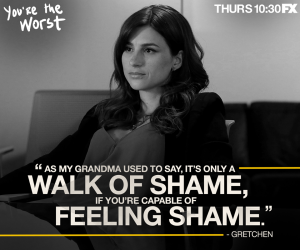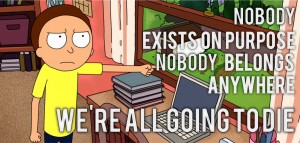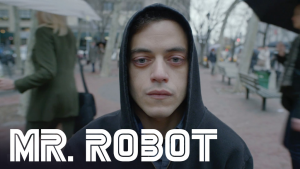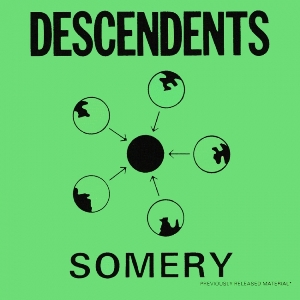
Somery has nothing to do with Somers.
It’s a funny old life, ain’t it? There was a time when I bought albums — old-school, long-form recordings with a bunch of songs. I often bought albums by bands I loved without having heard a single song from them. I’d buy older albums from before I discovered some band, and if they came out with a new one I’d buy it immediately.
I used to love the weird candy-like smell of a new cassette.
I bought new albums by AC/DC and NOFX the moment I could, excited to hear what they had for me.
Sure, sometimes I’d be a little disappointed. I’d discover half an album was just complete bullshit. Or I’d realize I’d paid $5.99 or whatever for an album that was thirty minutes and eight songs long, four of which I didn’t care for. But usually if I bought an album blind there was a reason for it. And sometimes I’d be blown away by the unknown. I bought Exile in Guyville based solely on what I’d heard about it, and was instantly — and more or less permanently — glad I did.
Those were the days. This week I purchased The Most Lamentable Tragedy by Titus Andronicus and realized it was the first album I’d bought in a long, long time. Usually, I just buy single songs as I hear them, because I had that epiphany: Most of the albums I’ve bought over my lifetime were at least 20% filler, some as much as 80% filler. And when I converted my old analog collection to digital years ago, I shed a lot of albums, keeping just the songs I liked and actually listened to. My decision to buy the new TA album had everything to do with the first two songs they released from it: Dimed Out and Fatal Flaw are perfect songs, and it gave me a giddy moment of optimism. For that moment, I was fifteen again and my faith in the long-form was restored.
It’s a rare moment. Albums just seem unnecessary to me these days: If I like a three-minute song, why in the world would I buy nine more I’ve never heard? And if I end up liking all ten songs and overpaying for the album, it evens out on all the other songs I don’t waste money on, I figure.
Some will argue that albums are discrete works of art, and need to be listened to and experienced as intended: As a set, a collection, a sequence. Some albums are this, yes, and even then your mileage will vary. For every Sgt. Pepper’s Lonely Hearts Club Band (and there are still two songs on that one I skip every single time) there will be a Kilroy Was Here, an album I almost bought when I was seventeen because I was going through a strange Styx fascination. In other words, just because some musician thinks I ought to listen to their songs in a certain sequence doesn’t mean I give a shit.
So, it’s mainly single-serving songs for me. And it’s weird to realize that my listening and buying habits have changed so drastically over the years. Some of this is simply the freedom that new technology affords me: MP3s and digital platforms have made it possible to sample entire albums and decide ahead of time if you want to actually own every single track on the album. This is a superpower for someone my age; back in The Day the only way you got to sample an entire album was a) if a friend of yours already owned it or b) if a local record store had a listening station, or maybe c) if your library stocked albums to borrow. In other words, it wasn’t easy, and frankly if a friend owned the album and was willing to lend it I probably just dubbed it onto cassette anyway.
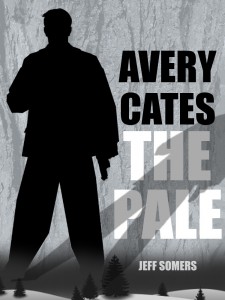
The Pale: An Avery Cates Story
I am thinking about this, actually, because I’ve been writing these Avery Cates Digital Shorts. These short stories are all about 10- 15,000 words long, and will combine into a standalone novel eventually. But they’re also single-serving. In other words, while they tell an ongoing story about everyone’s favorite beat-up, aging future assassin, they’re also standalone. You can read them out of order and while you might miss some details or callbacks to the others, you’ll also get a distinct standalone arc in each one. So, like today’s music, you can wait to buy the whole complete book or just sample the stories that sound interesting.
Will it work? Define “work.” It’s a slightly different way of writing a book for me, but the end result will be an Avery Cates book. If some folks buy the first one, The Shattered Gears, and decide not to proceed, that’s too bad for me, but it’s great for the reader, because they got to spend one dollar and realize this is not their cup of tea, as opposed to eight dollars. And if they wind up buying each story as they come out, in the end they’ll spend as much as if they bought the book whole, so it’ll be a wash financially.
And in the meantime, I’m having fun writing like this, with a tighter focus on each individual section of the overall story. It’s a single-serving universe these days, after all. Why fight it?

